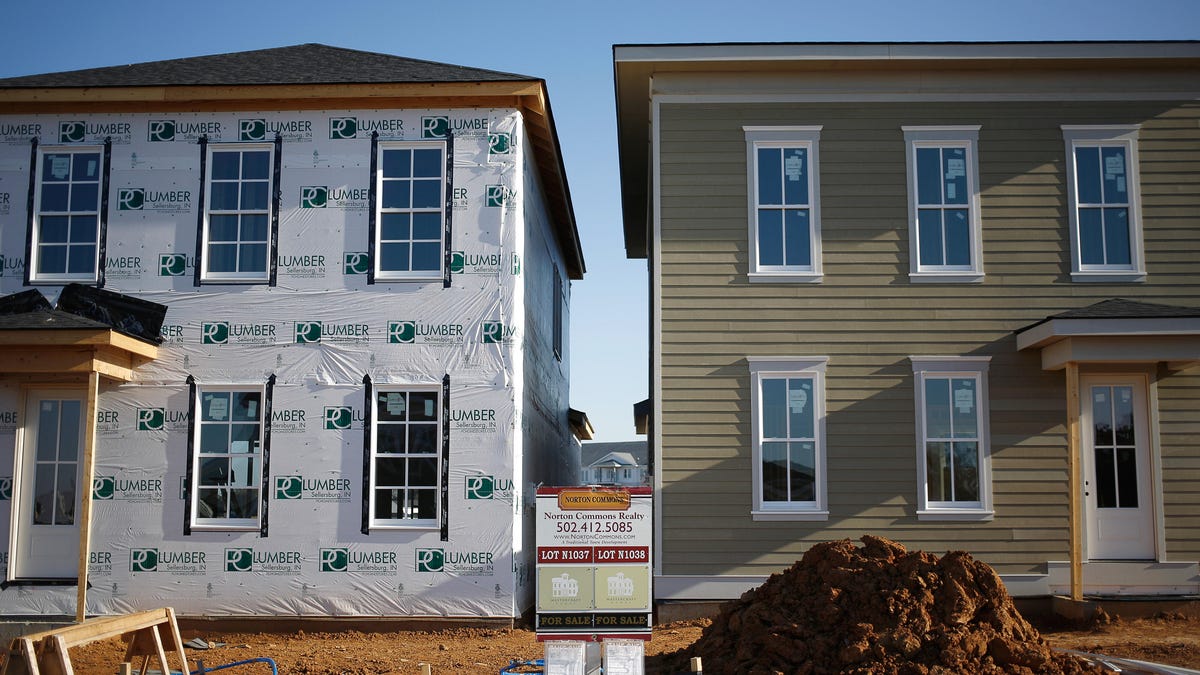Homeowners are tapping their equity: Cash-out refinances are up 33% since last November
The combination of low interest rates and surging property values are driving refis.

A cash-out refi can provide liquidity for home improvements -- if you can find a contractor.
Oh, what a time to refi. Harnessing the twin trends of low interest rates and high property values, homeowners continue to tap their equity through cash-out refinances. Despite a drop in refinancing activity overall compared to this time last year, the number of cash-out refinances has increased by 33%, according to the most recent mortgage report published by financial services firm Black Knight.
In a cash-out refinance, you take out a larger loan (often with a lower interest rate) that's used to pay off your current mortgage -- netting you a lump sum of cash that can be used to consolidate debt or finance home improvements. Given that interest rates have remained largely unchanged since last week's Fed meeting, it's a sign that Americans will continue to push ahead with refis, and especially the cash-out variety. As we previously reported, there are more than 11 million homeowners who could refinance now and lock in a lower interest rate.
"There is still a very large pool of homeowners that could still refinance at current rates," said Greg McBride, chief financial analyst at Bankrate. "Even with the recent uptick in rates, mortgage rates are still lower than anything seen prior to August 2020."
On the whole, refinance loans are down 63% from where they were last year and now make up less than half (45%) of the overall market. This shift makes sense given that mortgage rates have been at never-before-seen lows for over a year now, and many motivated homeowners have refinanced already, said McBride. But there are plenty of Americans who could still benefit by taking action now.
As rates increase, the refi market naturally tends to shift toward a higher volume of cash-out refis. "The dynamics of the refinance market are changing, with a sharp shift away from rate/term refis to cash-out lending," Scott Happ, president of Black Knight's secondary marketing technologies, said in the report. "This shift tends to happen in any rising rate environment, never mind one in which American mortgage holders have more than $9 trillion in tappable equity available to them. The overall trend toward an equity-centric refi market remains strong."
Last fall, 30-year rate offerings were below 3% and hovered in the 2.8 to 2.9% range, but this year "October's month-end conforming 30-year rate [was] at 3.27%," according to Black Knight. Even though the 30-year rate has crept back above 3%, you could be one of millions of people with unlocked equity still sitting in your home. Using a mortgage calculator or reaching out to a trusted lender can help you figure out if refinancing could help your specific financial situation.
What are the benefits of refinancing right now?
At a time when inflation is driving up the price of certain products and services, "the ability to refinance -- and trim your monthly mortgage payment by $150 or $200 per month -- can provide valuable breathing room in a household budget," McBride said.
Read more: How to refinance your home
And waiting too long could cost you. There's always a chance that rates could increase before homeowners lock in at their current lows, McBride cautions.Against a backdrop of continued economic growth, increasing inflation and the Federal Reserve's dialing back of stimulus, there's "a greater likelihood of higher mortgage rates than lower mortgage rates in the months ahead," McBride said.
What should you do if you recently completed a cash-out refi?
Despite continued cash-out opportunities, labor and supply shortages have limited the options for homeowners to invest their equity in home improvements and renovations. In a Harris Poll conducted this October, 42% of homeowners said that home improvement was their reason for taking, or considering taking, money out of their home. McBride's advice: Put your money where you won't touch it while you wait out any supply chain or labor shortages.
"If backlogs are delaying home improvement projects, just put aside the proceeds of your cash-out refinancing into a separate online savings account until needed," he suggests. "It makes sense to isolate this money in its own account so it doesn't get commingled with money needed for other purposes or frittered away over time and not be there when the time comes to pay the contractor."

